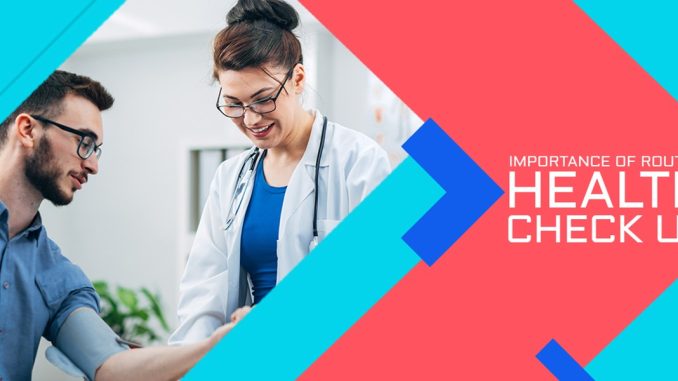
Prioritizing our health often feels like a reactive process, something we only consider when symptoms arise or discomfort sets in. However, a truly proactive approach to well-being hinges on the consistent practice of **routine checkups and preventative screenings**. These regular visits to healthcare professionals are far more than just formalities; they are critical safeguards, silent guardians that can detect potential health issues before they escalate, manage chronic conditions effectively, and ultimately contribute significantly to a longer, healthier, and more vibrant life. In a world brimming with health information, the wisdom of consistent, professional oversight remains an invaluable cornerstone of personal wellness.
### Early Detection: Catching Problems Before They Escalate
The most compelling argument for routine checkups and screenings lies in their power of **early detection**. Many serious health conditions, from certain cancers and heart disease to diabetes and hypertension, often present with no obvious symptoms in their initial stages. By the time noticeable symptoms appear, the condition may have progressed, making treatment more complex, invasive, and less effective. Regular screenings, such as blood pressure checks, cholesterol tests, mammograms, colonoscopies, and Pap tests, are designed specifically to identify these silent threats at their earliest, most treatable phases.
Consider the example of high blood pressure. It’s often called the “silent killer” because it typically has no symptoms. Left unchecked, it significantly increases the risk of heart attack, stroke, and kidney disease. A routine checkup, however, can easily identify elevated blood pressure, allowing for timely lifestyle modifications or medication to bring it under control long before it causes irreversible damage. Similarly, a mammogram can detect breast cancer when it’s still a small, localized tumor, vastly improving the chances of successful treatment and full recovery. This proactive approach dramatically shifts the odds in favor of positive health outcomes, transforming potential crises into manageable challenges.
—
### Managing Chronic Conditions and Preventing Complications
For individuals already living with **chronic health conditions** like diabetes, asthma, or autoimmune diseases, routine checkups are absolutely indispensable for effective management and the prevention of complications. These regular appointments allow healthcare providers to monitor the progression of the condition, assess the effectiveness of current treatments, and make necessary adjustments to medication or lifestyle recommendations. This continuous oversight ensures that the condition remains under control, minimizing its impact on daily life and preventing severe long-term consequences.
For example, a person with diabetes needs regular blood sugar monitoring, A1C tests, and checks for potential complications affecting the eyes, kidneys, and feet. These routine screenings, guided by a physician, are crucial for preventing serious issues like nerve damage, blindness, or kidney failure. Without consistent checkups, a chronic condition can quietly worsen, leading to emergency situations or irreversible damage that could have been avoided with proactive management. These appointments are not just about checking boxes; they are about ongoing partnership with your healthcare team to maintain optimal health despite existing conditions.
—
### Personalized Health Guidance and Education
Beyond detection and management, routine checkups offer invaluable opportunities for **personalized health guidance and education**. Your doctor isn’t just there to treat illness; they are a vital resource for preventative advice tailored to your unique health profile, lifestyle, and risk factors. During a checkup, you can discuss concerns about diet, exercise, stress, sleep, and mental health. This is your chance to ask questions, understand the latest health recommendations, and receive personalized strategies for improving your well-being.
For instance, based on your family history, age, or current habits, your doctor might recommend specific dietary changes to lower cholesterol, suggest a particular exercise regimen, or advise on appropriate vaccinations. They can also provide guidance on managing stress, improving sleep hygiene, or connecting you with mental health resources if needed. This ongoing dialogue empowers you with the knowledge and tools to make informed decisions about your health, transforming generic health advice into actionable steps relevant to *your* life. It’s a continuous learning process facilitated by a trusted professional. [Image of a doctor talking to a patient]
—
### Building a Long-Term Relationship with Your Healthcare Provider
Consistent routine checkups also facilitate the development of a **long-term relationship with your healthcare provider**. Over time, your doctor gains a comprehensive understanding of your medical history, your personal health trends, and even your lifestyle nuances. This continuity of care is incredibly valuable, as a doctor who knows you well can often spot subtle changes in your health that a new or unfamiliar physician might miss. They become more than just a medical practitioner; they become a trusted partner in your health journey, offering consistent support and advice.
This ongoing relationship fosters a sense of trust and comfort, making it easier to discuss sensitive health concerns and encouraging proactive engagement with your care. It also streamlines future medical needs; if an acute illness or injury arises, your doctor already has your full health context, which can lead to more efficient and effective treatment. This consistent connection ensures that your healthcare is integrated and holistic, rather than fragmented and reactive.
In conclusion, viewing routine checkups and screenings as non-negotiable appointments is a foundational principle of modern self-care. They are not merely bureaucratic hurdles but powerful tools for early detection, effective chronic disease management, personalized health education, and the cultivation of a vital, long-term relationship with your healthcare provider. By committing to these regular health assessments, individuals are not just reacting to illness; they are actively investing in their longevity, vitality, and peace of mind, ensuring that they can lead the fullest, healthiest lives possible.